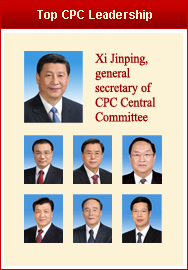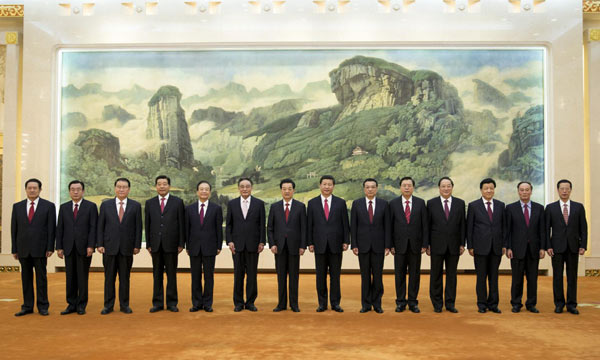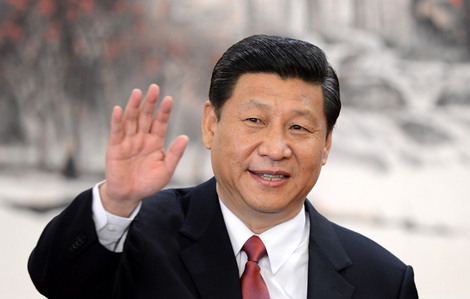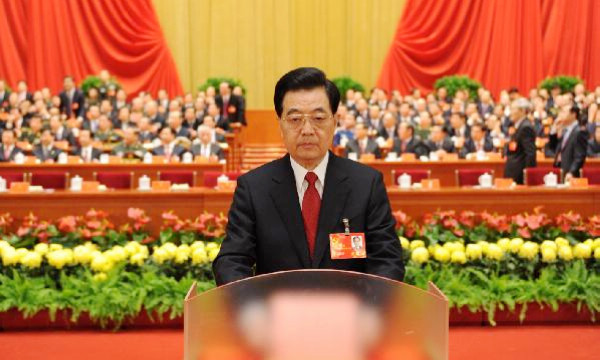May 4th Movement
(wiki.china.org.cn)
Updated: 2011-07-27 16:31
On May 1 Lu Zhengxiang secretly cabled the Beijing government, reporting the Chinese diplomatic failure in the Paris Peace Conference. On May 2, after Lin Changmin received confirmation of the failure from a telegram sent by Liang Qichao from Paris, he published an article entitled "A Diplomatic Warning to the Nation" in Beijing's Chen bao (Morning News). On the same day, Cai Yuanpei told the news to representatives of Beijing University students. The failure only stimulated the Chinese to take more vigorous actions. A general meeting of the Diplomatic Association was held in the afternoon of May 3. It decided a mass rally be held on May 7 at Central Park, and cabled popular organizations in the provinces to hold similar rallies on the same day. On the evening of May 3, a mass rally of Beijing University students was held, and they decided to stage a demonstration in Tiananmen Square the following day. On the same day, students of Beijing Teachers College also held a rally and determined to take stronger action the following day.
On the afternoon of May 4, more than 3,000 students from 13 colleges and universities gathered in Tiananmen Square. Holding aloft banners, distributing leaflets and making speeches, they demanded "upholding China's sovereignty," "punishing traitors," "abolishing the Twenty-one Demands," "recovering Qingdao," "refusing to sign the Paris Peace Treaty," and "punishing the three pro-Japanese national traitors Cao Rulin, Zhang Zhongxiang and Lu Zongyu." They swore, "Better die in glory than live in dishonor...the land of China can be conquered, but will not be forfeited...the Chinese people can be killed but they will not bow their heads!" After the rally, students marched to the Legation Quarters at Dongjiaominxiang. When they reached the west entrance, the way was obstructed by foreign policemen and they could not pass through. The enraged students, headed by Kuang Husheng, then went straight to Cao Rulin's house where they beat Zhang Zongxiang, who was found there, and set fire to the house. They were suppressed by the reactionary government and 32 students were arrested.
After the May 4th demonstration, college students in Beijing twice organized general classroom strikes to protest against the suppression and to launch patriotic activities. They organized into "10-people groups," making speeches on the streets, calling for the use of Chinese goods and the boycotting of Japanese goods, formed "protect-Shandong volunteers teams" and carried out military training. The Beijing government did its utmost to absolve Cao Rulin and other traitors from blame and slandered the students' action as "transgression" and "unlawfulness." It proclaimed that they should be punished to the extent of the "sanction of law." On June 3 and 4 the reactionary government arrested as many as 900 students making speeches on the streets, and turned Beijing University buildings into prison houses.
The patriotic movement in Beijing rapidly swept over the whole country. Students in Tianjin, Jinan, Taiyuan, Shanghai, Wuhan, Changsha, Xi'an, Guangzhou, Nanjing, Hangzhou, Nanchang, Kaifeng, Fuzhou, Hefei, and Baoding also went on classroom strikes and held demonstrations. Activities such as making speeches and boycotting Japanese goods were held one after another. Many cities and counties held mass rallies in support of the students. The Shanghai rally ended with the setting up of a permanent office. Shandong, apart from a mass rally attended by 100,000 people, organized a delegation composed of the provincial assembly, educational society, peasant society, press association, student federation and diplomatic discussion federation. It went to Beijing to petition to the government to refuse to sign the Peace Treaty and to punish the traitors. Thus a nationwide patriotic movement took place.
After June 5, the movement entered a new stage. The struggle center shifted from Beijing to Shanghai, where masses of workers, merchants and salesmen plunged into the movement. On June 5, Shanghai workers put down their tools to support the arrested students. Merchants, under the slogans of "students and merchants act in unison" and "suspension of business to save the country," closed shops and stopped business. Over 20,000 college and middle school students had held classroom strikes before the workers' and merchants' actions. Shanghai thus became the first city to realize "three strikes" (of students, workers and shopkeepers). On June 6, the Shanghai Federation of All Circles was established. In a week, over 50 factories and enterprises with some 70,000 workers in Shanghai joined in strikes. Merchants in other cities, like Tianjin, Jinan, Nanjing, Wuhan, Ningbo, Xiamen, Suzhou and Jiujiang followed the example of Shanghai's merchants; and workers in Tangshan, Changxindian and Jiujiang also launched strikes. Plans for strikes were brewing among workers in Tianjin and on the Tianjin-Pukou Railway. Statistics showed that over 150 cities in 22 provinces in China were involved in the suspension of business, factory walkouts and classroom strikes. The May 4th Movement grew from a mainly intellectual movement to a revolutionary one joined by the masses of the proletariat, petty bourgeoisie, national bourgeoisie and other patriotic persons. Under the pressure of the mass movement, the Beijing government was compelled, on June 10, to dismiss Cao Rulin, Zhang Zongxiang and Lu Zongyu. The Chinese delegation was not present at the meeting on June 28 in which delegates signed the Paris Peace Treaty. Thus the movement attained its two immediate objectives of punishing the traitors and refusing to sign the Peace Treaty.
The resolute and uncompromising anti-imperialist and anti-feudal spirit as displayed by the Chinese people in the May 4th Movement forced the Chinese delegates of the Beijing government to refuse to sign the treaty. It was an unprecedented action in Chinese diplomatic history. In the May 4th Movement the working class held political strikes as an independent force instead of following the bourgeois and petty bourgeois classes in revolutionary struggles as they had done in the past. The new Chinese intellectuals, armed with rudimentary ideas of communism after the October Revolution, played a leading role in the movement. The movement rapidly expanded the rank of the progressive intellectuals and also promoted the dissemination of Marxism-Leninism and its integration with the workers' movement in China, thus preparing ideologically and nurturing the necessary cadres for the founding of the proletarian party, the Communist Party of China. All these illustrated that the May 4th Movement had pushed the anti-imperialist and anti-feudal bourgeois democratic revolution to a new stage—the new-democratic revolution.
The May 4th Movement was at once a patriotic political movement and a new cultural movement. The former began from May 4 to June 28, the latter from September 1915, when Chen Duxiu published the first issue of Qing nian za zhi (Youth Magazine), to July 1921, when the Communist Party of China was founded, lasting for 5 years and 10 months. The cultural movement before the May 4th Movement had prepared ideological conditions for the breakout of the patriotic movement and, in the meantime, the rising patriotism also pushed forward the cultural movement, transforming it from a cultural movement characteristic of old democracy into one characteristic of new democracy with the dissemination of Marxism as its main current.

Top News
Xi emphasizes adherence to CPC Congress spirit
Top legislator urges implementation of congress spirit
Moderately prosperous China brings chances to world
Video







